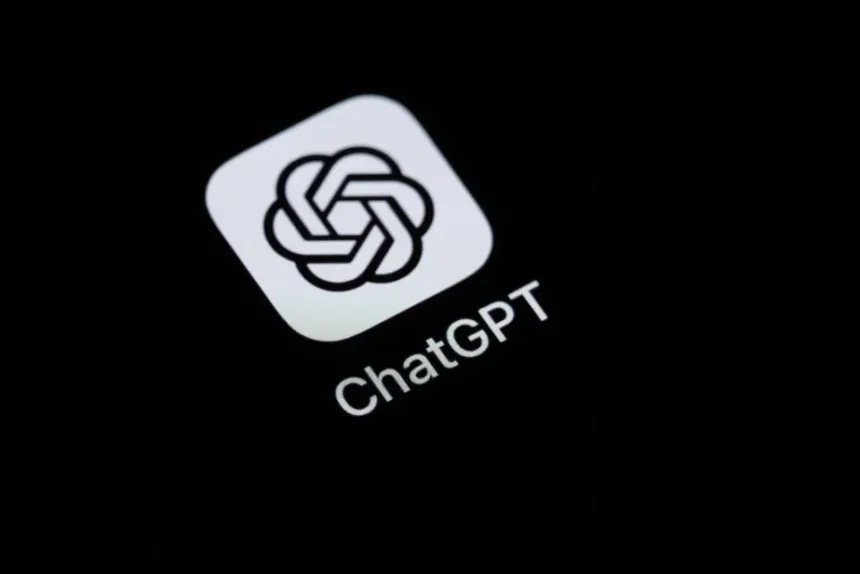In a significant move set to reshape the future of artificial intelligence, OpenAI has announced that it will phase out GPT-4 from ChatGPT by the end of this month, with a complete transition to its latest version, GPT-4o. The shift will take effect on April 30, 2025, marking the conclusion of GPT-4’s prominent role in powering one of the world’s most widely used AI models. While GPT-4 will be retired from the ChatGPT interface, it will continue to be accessible via OpenAI’s API for users and developers who wish to integrate it into their own applications.
The Rise of GPT-4o: A Stronger Successor
In an official changelog posted on Thursday, OpenAI emphasized the remarkable improvements GPT-4o has made over its predecessor. According to the company, GPT-4o has consistently outperformed GPT-4 in a wide array of domains, including writing, coding, STEM tasks, and even more complex problem-solving scenarios. OpenAI states that GPT-4o has benefitted from recent upgrades that enhance its ability to follow instructions, engage in dynamic conversation, and solve intricate problems, solidifying its place as the natural successor to GPT-4.
GPT-4, which was initially rolled out in March 2023, had introduced groundbreaking multimodal capabilities, enabling it to process both images and text—a first for any widely-deployed OpenAI model. This feature helped catapult GPT-4 into the spotlight, making it an indispensable tool for developers, businesses, and even creative professionals looking to harness the power of artificial intelligence.
Despite its initial success, the size and training costs of GPT-4 were significant, reportedly exceeding $100 million. This hefty price tag led OpenAI to launch GPT-4 Turbo in November 2023, a more cost-effective and faster alternative to the original model. GPT-4 Turbo was designed to offer similar capabilities with improved performance, marking the beginning of a new generation of models.
What’s Next for GPT-4 and OpenAI?
OpenAI’s decision to phase out GPT-4 aligns with the broader vision for the future of AI. As the company continues to refine its models, it is introducing more advanced and specialized variations of GPT-4o. The upcoming models—GPT-4.1, GPT-4.1-mini, and GPT-4.1-nano—are expected to bring even more targeted performance enhancements, with an emphasis on both versatility and efficiency. Additionally, OpenAI has teased the release of new reasoning models, including the highly anticipated o3 and o4-mini models, further broadening the range of tasks that these AI systems can handle.
While GPT-4 will soon be replaced as the default model in ChatGPT, its legacy will not be forgotten. The multimodal capabilities that made GPT-4 so influential will continue to inform future iterations of OpenAI’s AI systems. However, the introduction of GPT-4o represents a leap forward in terms of raw computational power and refined functionality, ultimately making GPT-4’s retirement a natural progression in the AI landscape.
GPT-4 and the Ongoing Copyright Dispute
It’s worth noting that GPT-4’s role in the ongoing copyright dispute between OpenAI and several publishers—including The New York Times—remains a contentious issue. Publishers have accused OpenAI of using their content to train GPT-4 without consent, sparking a broader debate over the ethics of data usage in training artificial intelligence models. In response, OpenAI has invoked the fair use doctrine, arguing that its use of publicly available data is legally protected.
As OpenAI moves forward with new AI models, it is likely that this issue will continue to evolve, especially as the company seeks to maintain transparency and navigate regulatory concerns in the rapidly changing landscape of AI technology.
The Future of OpenAI’s Models: What’s Coming Next?
As OpenAI prepares for the retirement of GPT-4, the company is simultaneously laying the groundwork for a new generation of AI models. According to reverse engineer Tibor Blaho, OpenAI is developing a new family of models, which includes GPT-4.1 variants and the promising o3 reasoning model. The arrival of these models signals that OpenAI is committed to pushing the boundaries of artificial intelligence, with a particular focus on improving the models’ ability to reason, solve complex problems, and provide deeper insights.
Moreover, the introduction of the o4-mini model is expected to further expand the capabilities of AI in specialized reasoning tasks, providing a robust foundation for future applications in diverse fields such as healthcare, finance, law, and education.
With these innovations on the horizon, the retirement of GPT-4 may prove to be just the beginning of a new era for OpenAI. As the company refines its approach to model development and training, it will likely continue to shape the direction of the AI industry, setting new standards for what artificial intelligence can achieve.
Conclusion: A New Era for AI
The retirement of GPT-4 is a clear indication that OpenAI is moving swiftly toward the next phase of its AI development, with GPT-4o leading the charge. While GPT-4 will still be accessible for API users, its role in shaping the future of AI will be gradually overshadowed by newer, more powerful models. As OpenAI continues to innovate, it is exciting to imagine the possibilities that lie ahead with these new advancements.
Whether you’re a developer, business owner, or AI enthusiast, the future of artificial intelligence looks more promising than ever with the upcoming generation of models ready to transform industries across the globe. Stay tuned for more updates as OpenAI continues to redefine the potential of AI technology.










